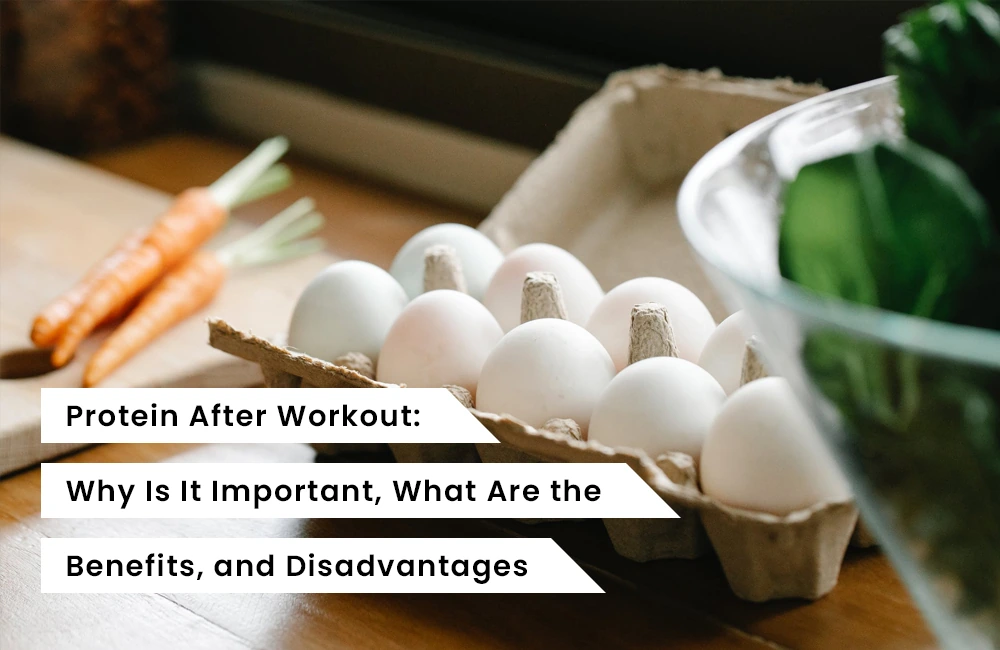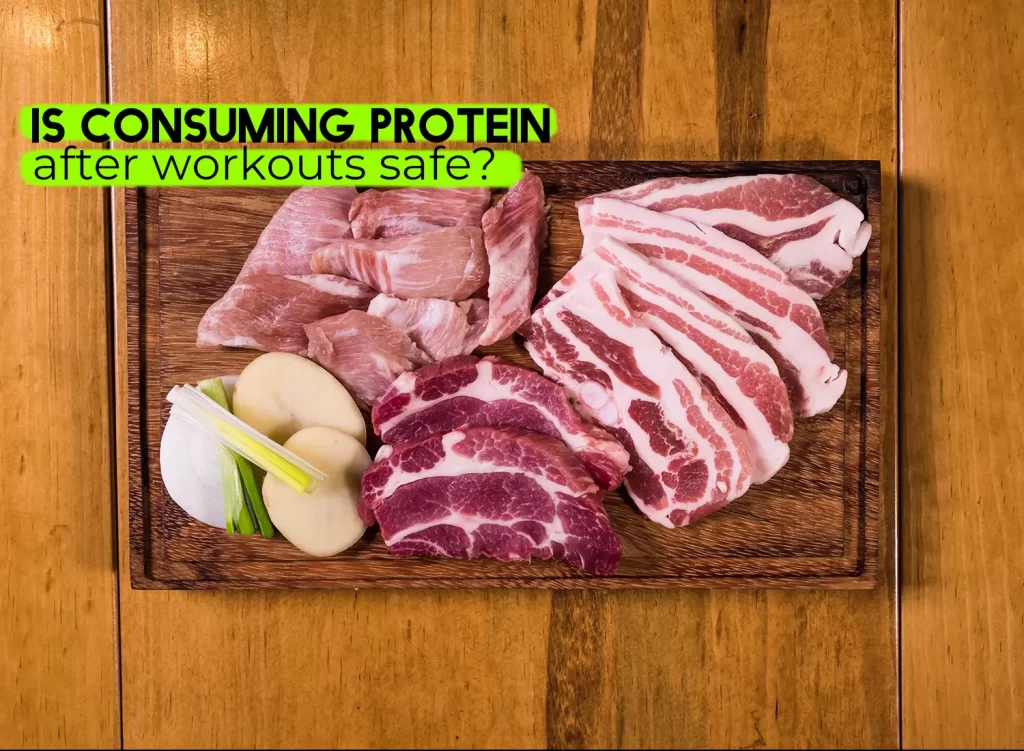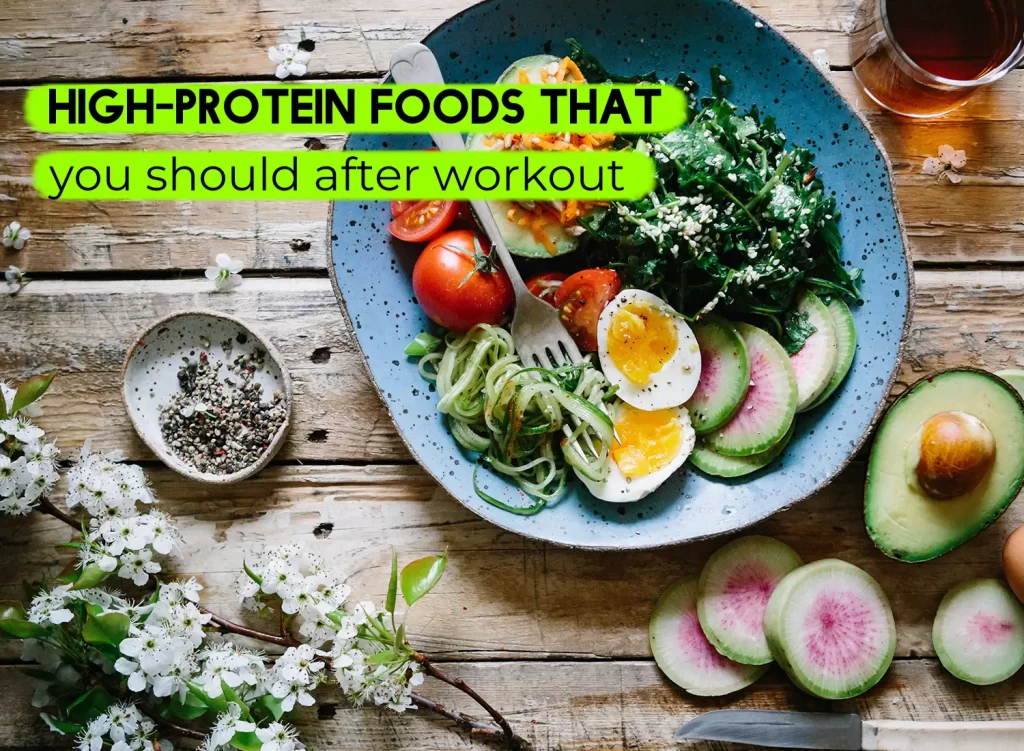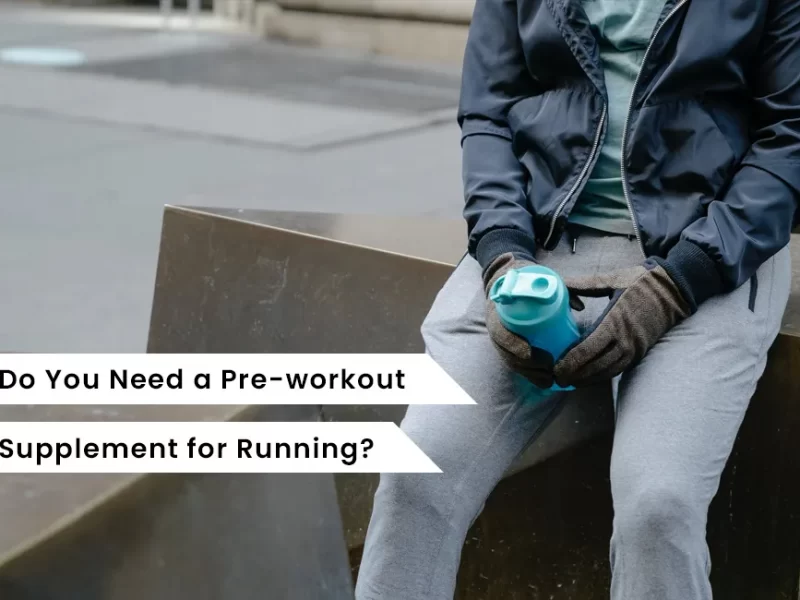Table of Contents
Eating/drinking protein after a workout is one of the most popular post-workout things to do. It helps to repair muscles, build lean muscle tissue, and maintain muscle mass. In this article, we will discuss why people need to consume protein after a long tiring workout.
Why is Protein after workout important?
Protein after a workout is important because it helps to repair muscles and replenish the body with essential amino acids. Protein also helps in providing energy for a person’s day-to-day activities.
Protein after a workout also aids in muscle growth and repair. If you want to build muscle, then you need to consume protein after your workouts as well as before your workouts.
Intense or prolonged activity causes an increase in muscle protein breakdown. This is followed by an increase in muscle protein synthesis over the next 24 hours. For that reason, it’s important to consider both the amount of protein you eat and when you eat it.
Ideally, protein should be eaten within 30 minutes of finishing a workout. Combined with simple carbohydrates (i.e., sugar), your post-exercise snack can help both replenish energy stores and rebuild muscle. Miss the 30-minute window? While less effective, fueling any time after activity is still important and can be beneficial.
Is consuming Protein after workouts safe?
Consuming protein after a workout is an effective way to build muscle. However, not all proteins are created equal. Some contain high amounts of fat and calories, which can lead to weight gain and health problems.
Protein supplements are not a substitute for healthy eating habits and exercise. They should be used in addition to these healthy lifestyle choices in order to get the best results from your workout routine.
The question of whether or not it is safe to consume protein after a workout is an important one. Protein intake after a workout has been shown to be beneficial for muscle building and recovery. The human body can also use the protein in order to repair and rebuild muscle tissue.
The answer is yes, as long as the post-workout protein consumption does not exceed the recommended daily allowance.
Benefits of consuming Protein after workout
Protein is a vital part of our diet and it can also be used to gain muscle mass. Consuming protein after a workout helps in the recovery process, prevents muscle breakdown, and helps in the building of new muscle tissue.
The benefits of consuming protein after a workout are numerous. These include:
- Muscle repair and growth
- Preventing muscle breakdown
- Building new muscle tissue
- Reduced soreness
- Improved performance
In addition, Protein also helps the body repair muscle damage and speed up recovery. This can be achieved by consuming a protein shake or other sources of protein within 30 minutes of exercise.
Protein consumption after working out has many benefits, including faster recovery and muscle repair.
See also Arm Toning Workout: What Is It, Main Benefits and Risks
Disadvantages of consuming Protein after a workout
Protein is an important macronutrient that our body needs to function properly. It is responsible for the building of muscle and tissue. However, it also has some drawbacks such as causing stomach discomfort, bloating, and even diarrhea.
The main disadvantage of consuming protein after a workout is that it can cause stomach discomfort. This can be caused by the increase in gas production from digesting protein. Other disadvantages include bloating and diarrhea which can be caused by the increased fiber intake from consuming protein after a workout in excess amounts.
Protein is an important part of a healthy diet, but it can also have some disadvantages. These include the following:
- It can cause bloating in the stomach and diarrhea;
- It can cause weight gain;
- It can cause irritability and mood swings.
In addition, Protein has a high thermic effect which means that it requires more energy to digest than other food sources. The digestion process can lead to fatigue and muscle breakdown if the person does not have enough energy or nutrients in their system.
Some athletes may also struggle with eating too much protein because they can develop diarrhea if they don’t drink enough fluids while consuming it. They may also struggle with their weight gain because they need more carbohydrates and fats in their diet instead of proteins.
What type of protein is best after a workout?
From whole foods to supplements and animal- to plant-based proteins, there are many ways to meet your protein needs, and it can be confusing to navigate. Also known as complete proteins, high-quality proteins (those which are highly digestible and provide an adequate amount of essential amino acids, which our bodies can’t make) are most effective for building, repairing, and maintaining muscle.
High-quality food sources of protein include dairy, fish, meat, eggs, and soy. However, that’s not the only type of protein that’s useful. You’ve likely seen whey (from dairy) and plant-based protein powders, concentrates, and isolates on the market, too.
Like soy, pea protein is a plant-based protein that has been found to be effective for post-workout recovery and can be used by all athletes — even those who follow a vegan diet. Just keep in mind, pea protein is an incomplete protein, meaning it delivers fewer essential amino acids, so you may have to eat more to have the same recovery impact as whey or soy.
With that said, for most people, eating enough calories during the day and including a variety of plant-based foods in the diet can ensure adequate protein and amino acid intake. You don’t need to eat animal protein to support post-workout recovery; all types of protein can work.
What happens when you don’t eat protein after workout?
In theory, not eating protein after workout means that your muscles don’t have what they need to efficiently and successfully repair.
When protein isn’t present in adequate amounts, the muscle is not able to fully repair and grow, which leads to inflammation and an increased risk for injury.
This inability to repair is the culprit for many overuse injuries that people suffer from. Many overuse injuries occur from a lack of the proper repair nutrients (aka amino acids from proteins) the body needs to support muscle and tendons and reduce inflammation.
High-Protein foods that you should eat after a workout
After you kill it at the gym during leg day or after you complete a long run, do your body some good and make sure to eat one or more of these high protein foods. Many of these foods are pretty basic and can be versatile to cater to whatever your hungry body is craving post-workout.
environment, so eat with caution.
Quest Bar
If you haven’t had a Quest bar by now, I’m not sure what you’ve been doing with your life. These miracle protein bars are low-carb and have 20 grams of protein. The flavors of Quest bars seem to be endless and you can make healthy dessert recipes or bake them. This post-workout snack will get old.
Peanut Butter
Peanut butter is a wonderful addition to any piece of fruit, rice crake, bread or just straight from the jar, to satisfy you after your workout. This calorie-dense favorite is not only a good source of protein, but also a large serving of your daily intake of healthy fats.
Greek Yogurt
Regular yogurt in comparison to Greek yogurt just comes up short. Greek yogurt has up to 17 grams of protein in one cup, which is sure to bring you some gains.
Although it benefits us with its protein content, Greek yogurt may be harmful for the environment, so eat with caution.
Protein Powder
Don’t worry, I’m not suggesting that you eat raw protein powder. Protein powder is one of the most convenient ways to get some protein in after the gym. Whether you are just mixing it with water in a shaker bottle, making a protein smoothie or cooking protein pancakes, protein powder will add flavor along with nutritional content.
Edamame
Not only is dry roasted edamame full of protein, fats and fiber, but this nutty snack is around $2 a bag, making it a healthy steal. Keeping a bag of edamame in your gym bag is one of the cheapest and quickest ways to get up to 14 grams of protein per serving. This roasted soy snack is a favorite of mine to keep around for snacking or on salads.
Eggs
Everyone knows eggs are the OG source of protein with about 6 grams per egg, so make sure to eat them after you workout, no matter what time of day. Add an avocado, make an omelet filled with veggies or hard-boil a dozen to keep it interesting.
Cottage Cheese
Cottage cheese is the hidden gem of protein sources with almost 20 grams of casein protein per serving. Yogurt is often given the limelight, but this dairy product should not be written off. Paired with fruit or topped on a salad, cottage cheese is a nutritious way to recover from a workout.
Green Peas
Popeye might be a little upset, but a cup of green peas offers 8 times more protein than a cup of spinach, clocking in at 8 grams. Frozen peas will do you more than just ice your sore muscles after the gym. Eat them plain on the side of a protein or make pea pesto chicken if you have time.
Tuna
Tuna sandwiches aren’t just for kids and school lunches. A 3 ounce can of light tuna has 16 grams of protein, half a gram of fat and only 70 calories. For a quick and easy post-workout snack, add tuna to whole grain crackers, make a tuna melt or get creative and make tuna salad in an avocado bowl.
Beans
One cup of black beans has a whopping 20 grams of protein, making them a cheap and virtually fat-free way for a protein fix after you just killed it at the gym. They’re vegan, vegetarian, gluten-free and dairy-free so they fit with almost any diet. Add them to rice, tacos and salads, or make black bean corn chili.
Shrimp
Looking for something extremely low calorie and high protein? Yep, you guessed it, it’s shrimp. A 3 ounce serving of shrimp has 19 grams of protein and each large shrimp has only about 7 calories.
You can buy frozen cooked shrimp to heat it up easily after the gym or you can get as fancy as you would like with endless recipes.
Hummus
Hummus is a common favorite dip for veggies, pita, chips and pretzels. If you are craving something crunchy and dip-like after a sweat-session, reach for hummus instead of salsa. One serving of hummus offers about 5 grams of protein per serving along with healthy fats, without adding on too many calories.
Eating veggies and hummus is also a good way to make sure you get a serving of vegetables.
Chicken
Chicken is the other OG protein source and should be a go-to after a workout to rebuild your muscles. Chicken options are endless – from frozen to rotisserie and from diced to strips. Add chicken to a salad, whip up a healthy chicken burrito wrap or pretend you’re a chef and make a recipe like spinach soufflé stuffed chicken.
Protein Waffles
Waffles are appropriate at any time of day, especially after you pushed your body to its limits and wanted a treat. Protein waffles are an especially easy way to get your body protein and carbohydrates quickly after a workout. Make them yourself, or try my personal favorite frozen brand, Van’s Power Waffles. Two of these waffles have 10 grams of protein.
Use toppings like fruit, peanut butter, natural jam or Greek yogurt to step up from just maple syrup.
Almonds
Nuts are a convenient on-the-go snack and a serving of almonds will pack in almost 7 grams of protein. The fat content combined with the protein makes almonds a post-workout snack that your body will thank you for.
Lentils
Lentils should be an essential in your kitchen if they aren’t already. With a bean-like texture, lentils similarly pack in about 17 grams of protein per cup. They can be eaten cold or hot, and there are numerous ways to cook lentils for a post-gym meal that will be sure to hit the spot.
Tofu
This soy-based protein is a go-to for vegetarians and vegans and has about 20 grams of protein per cup. Meat-eaters can enjoy tofu as well; tofu will take the flavor of whatever you are cooking it in, so if make right, it is a protein source that can satisfy all.
If you are still hesitant towards tofu, try one of these recipes after your workout to change your mind.
Quinoa
This whole grain has 8 grams of protein per cup. Quinoa is another versatile food that can be eaten in so many different ways when you get back from the gym, from quinoa oatmeal to bacon pumpkin quinoa.
However, there seems to be an ethical dilemma surrounding quinoa at the moment. Read more here.
Salmon
If you are in desperate need of a lot of protein after an intense gym-session, go for a piece of salmon. A 0.5 ounce serving of salmon has 30 grams of protein and about 20 grams of fat. While the fat content may seem high, salmon is chock-full of healthy omega-3 fatty acids.
Cooking salmon is easy and fool-proof, even for the least competent cooks out there.
Summary and Conclusion
Consuming protein directly after a workout ensures your muscles have enough fuel to heal and minimize crisscrossing pains and muscle mass.
There is a lot of protein-rich whole foods on the market, with protein supplements like shakes, powders, bars, & gels serving as a great way to top up.
Dietary protein is the most important source of the macronutrient. Post-workout supplementation won’t do all that much unless you’re already getting your baseline dietary needs.
Protein isn’t the only foodstuff you should pay attention to when chowing down after a gym sesh. Carbohydrates are also important, as are fats.
While there’s no real risk associated with protein supplements, you should always follow the recommended dosage on the label. Stop and speak with a doc if you start to experience symptoms of an allergic reaction.
See also Burn Fat and Increase Endurance With This Beginner’s HIIT Running Workout




